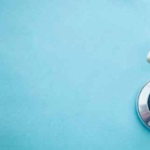LET’S HAVE A DRINK
There’s a big choice of beverages out there.
Most noticeable these days are the energy drinks, a new wave of pick-me-ups that are spreading throughout the country. For people still reeling from COVID or struggling twosome to grips with inflation, an extra bump during the day seems to help. Some say it wards off depression.
For whatever the reason, energy-drink sales are up 17% from last year and 56% higher than 2019. That’s pretty impressive.
What are we talking about here? Beverages laced with sugar and caffeine, but also sporting vitamins, electrolytes, fruit extracts. Some replace sugar with natural sweeteners like stevia or erythritol. Others add health fads like turmeric acid. Many have double the caffeine content of a cup of coffee yet sell for half the price of a Starbucks espresso.
 Everybody’s getting into the act. At first there was just Red Bull and Monster. Now there’s Celsius, Bang, Mountain Dew Energy and Fast Twitch. Big players like PepsiCo are jumping in.
Everybody’s getting into the act. At first there was just Red Bull and Monster. Now there’s Celsius, Bang, Mountain Dew Energy and Fast Twitch. Big players like PepsiCo are jumping in.
Are the drinks good for you? Not really.
The medical community says they contribute to high blood pressure, arrhythmia, anxiety and insomnia. But let’s not be too quick to judge. We certainly don’t want to disparage coffee. Most of us can’t function without a cup or two of joe, everyone’s beverage of choice.
Some 85% of American adults drink it. Not only does it wake you up in the morning, it’s good for you, at least in moderation. Coffee’s health effects have been well documented—reduction in risk of Parkinson’s disease, prostate and liver cancer, Type 2diabetes, certain types of cardiovascular disease, melanoma.
The benefits come from numerous ingredients in coffee, not just the caffeine (decaf provides essentially the same benefits). Scientists say coffee is loaded with anti-inflammatories, as well as antioxidants that disrupt cell damage, lignans that slow the spread of cancer cells and chlorogenic acid, a substance that lowers blood sugar levels.
Now, to top it off, comes a study saying coffee drinkers actually live longer. That’s right.
Consumption of 2-4 cups a day can increase your lifespan by up to 16%, add as much as 10 years to your life.
As you may imagine, there are all kinds of caveats associated with the study—mitigating factors that include chronic disease, lifestyle, heredity, and other things. But even the possibility of an extra 10 years is a pretty good excuse to keep swilling coffee.
What else is happening in beverages?
When you talk about drinking, you have got to include booze. More alcohol is being consumed in the United States than ever before. Statistics from the National Institute on Alcohol Abuse put consumption at about 2.75 gallons per person in 2021, up 17% from five years ago. Beer sales are up 21% in 2022.
But the trend toward healthier lifestyles is changing things. With alcoholism on the rise, distilleries are starting to reduce ethanol concentrations in packaged drinks. PepsiCo and Boston Beer recently collaborated on a canned Mountain Dew beverage with 5% alcohol. Diageo and Brown-Forman are both designing low-alcohol fruit drinks.
By 2025, brewing giant Anheuser-BuschInBev wants one-fifth of all drinks it sells to contain little or no alcohol.
How about complete abstinence? Help is coming there as well. Researchers have found that psilocybin, a substance in psychedelic mushrooms, sharply reduces craving for alcohol.
A study published in JAMA Psychiatry reports clinical results that show psilocybin substantially reduced heavy drinking and, in many cases, led trial participants to quit cold turkey.
How about that? Psychedelic mushrooms. We’re back to the Age of Aquarius.
Dr. Trecker is a chemist and retired Pfizer executive living in Naples.





Leave a Reply
Want to join the discussion?Feel free to contribute!